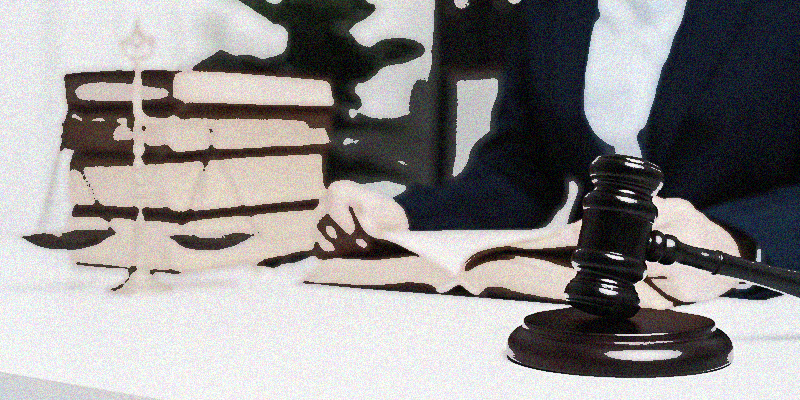By the time I got there, everything was cleaned up. That’s how it always was. Casings collected by the cops, or kicked by passersby into the storm drain; blood scrubbed off the sidewalk; witnesses with three days to vanish or make up a story about how they didn’t see what they saw. A boisterous boy with a huge smile—his high school yearbook photo was on all the 6 pm newscasts—shot dead through the face and lung.
The police arrested Jacques. Not his real name, of course. They say he just stood up out of his car outside the nightclub and started shooting. The dead boy’s girlfriend saw it happen. The police story was easy to tell: straightforward and locked down. They got there first, after all. Still: When I went to the impound lot, I saw a puncture mark on the back of Jacques’ headrest, the plastic puckered inward. Someone shot into the car; something the police didn’t tell us.
Maybe this could be a good story for a reader, or a jury—but some audiences would only find it satisfying if it ended in an accurate conviction, just exoneration, or some other restoration of order that looks like justice. And defense attorneys struggle to tell those stories, because they don’t map onto our experience of the criminal legal system or our understanding of ourselves. That’s why crime fiction is mostly written by, or focuses on, the work of police detectives, sometimes private investigators, maybe prosecutors. Not public defenders, who represent the lion’s share of accused people in U.S. courts, millions of cases every year. And that, in turn, means so much of what happens to accused people—so much violence, suffering, redemption, and even occasionally justice—doesn’t get told.
Defenders don’t often write crime fiction—in part, because we’re not supposed to think of ourselves as heroes. A bad defender makes himself the star of the show, reducing the accused person he’s sworn to defend into an accessory: My client, he’ll explain, is not guilty. Putting aside the not guilty, which is two-thirds of the way to guilty—as a rule, a lawyer should be prepared to tell the jury his client is innocent, or he should hang it up—how is a juror supposed to embrace the shared humanity of an accused person whose own lawyer won’t use, or can’t remember, his name?
The protagonists of crime novels are mostly the people trying to unravel the crime. In the best crime fiction, as Raymond Chandler famously explained, a person of honor, even if flawed, reaffirms a moral personal code by restoring a small part of a disordered society to order. But for defenders, lawyers aren’t the protagonists. The lawyer is a mouthpiece or an alterego—the agent, not the principal. You’re a translucent screen through which the jury sees the accused differently.
So being true to yourself as a defender while writing crime fiction means telling a story where the lawyer may be the narrator but isn’t the subject. It’s not about you. The narrator can be flawed, foul-mouthed, hard-drinking, and cynical, just like stereotypical detectives. Lots of defenders actually are. Laconic or voluble, either rings true. But, if they’re being portrayed as a skilled and ethical lawyer, and if the novel is interested in authenticity and accuracy, the lawyer can’t also be the novel’s moral center.
That’s a harder book to write and a more complicated book to read. I have to hope, though, that it can also be a compelling read, because—like a good defense case—it opens up room for nontraditional heroes. In the stories that defenders tell in court, the jury or the judge is the hero. They’re the ones who will restore balance to justice, by acquitting an innocent person. And the people we work for are the subjects: people as decent, violent, loving, dishonest, resilient, afraid, brave, and venal as everyone else.
If it’s hard for defenders to write as themselves, it’s also hard for other writers—again, if they want to write with accuracy and realism—to adopt the defense perspective. That’s in part because what defenders do is slow, patient, grinding, and infected with uncertainty. We don’t have the whole story, and we never will.
We get there late. We don’t see the blood, not firsthand. We try to knock on every door on the block, but we can’t bring in a whole squad of rookies to canvas. We don’t have the threatening swagger or the showy beneficence that police can deploy. We don’t have warrants, subpoenas, grand juries, interrogation rooms, crime labs. People talk to police—or refuse to talk—because of the ways that police are different: they can protect you, or they can hurt you. People talk to defenders, when they do, because of what we have in common. We’re all hurt, and tired, and looking to unburden ourselves. Defense investigative work rewards patience, kindness, slyness, persistence, empathy.
And like real life it’s all riddled with doubt. People assume we know what really happened, but we mostly don’t. Our single structural advantage is a monopoly on talking to the accused—a monopoly if, that is, he didn’t break under interrogation, or get recorded saying something stupid on a jailhouse phone call, or tricked by a jailhouse snitch. But I almost never came away from talking with my client feeling like I understood. I had clients tell me they were responsible for things I didn’t believe they did—maybe to help a friend, maybe out of despair. Mostly, talking to my clients just raised more questions.
It took a full day of door-knocking even after we found the girlfriend’s apartment complex. There were hundreds of units, and all we had—thirdhand, from an old schoolmate; the police of course didn’t tell us where witnesses lived— was the street address. We sat with her on the floor and drank flat root beer out of Styrofoam cups, for hours. She cried, and eventually she told us something she hadn’t told the police: She saw Jacques with a gun, but she didn’t know if he shot it. There were lots of guys with guns out there that night. She didn’t know who shot first. Armed with that and with the evidence about the gunshots into the car, we pushed and prodded at the prosecutor. Eventually a detective admitted on the stand that it could have been self-defense. Jacques got out. A few days later, the dead boy’s friends found him and ruined his pelvis and legs with dozens of rounds from an Uzi, so he’ll never walk right again. We still don’t really know who did—either crime—who shot first outside the nightclub, or why.
I don’t know if Jacques’ story, by itself, would be a satisfying longread. Nobody was wrongfully convicted or exonerated; nobody was held accountable for two horrific tragedies. I get of course that crime fiction is built around dramatic aberrations, the freakish and the extraordinary. And the defender’s experience does include moments of transcendent redemption, or warranted punishment. But more often the defender’s experience is of moral ambiguity, factual doubt, the tension between loyalty and exhaustion, wavering commitment, slow perseverance. That’s a part of the story that doesn’t get told, but should—if we want honesty, realism, and grit in our fiction about justice and injustice.
***


















